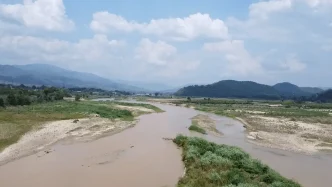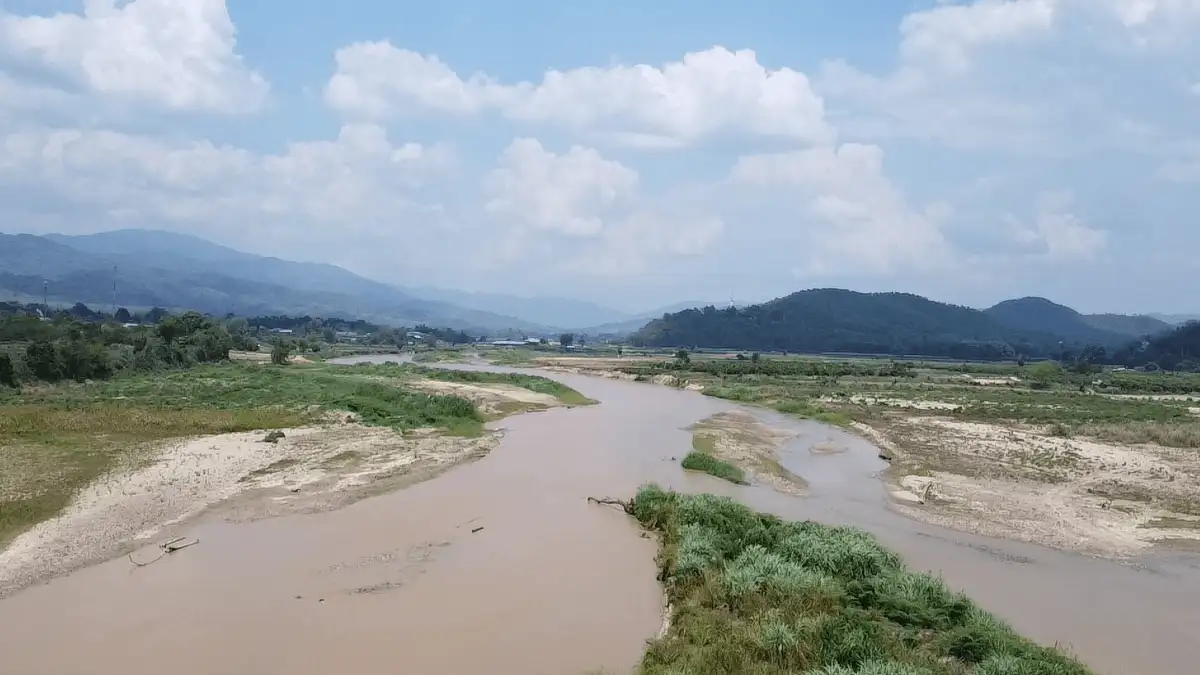Thailand is taking urgent steps to address a growing environmental crisis along the Kok River, dispatching a team of experts to Myanmar next week to negotiate solutions for arsenic contamination that threatens communities in northern Thailand. The move comes amid mounting concerns over water quality, public health, and food safety in Chiang Rai, where hazardous levels of arsenic and lead have been detected in the river and nearby Sai River.
Urgent Diplomatic Push
The decision to send a delegation to Naypyidaw follows a public outcry in Thailand, amplified by Foreign Minister Maris Sangiampongsa’s recent statement on social media. Responding to questions posed to Prime Minister Paetongtarn Shinawatra during her visit to Chiang Rai, Maris emphasized that water pollution has become a top priority for the government. Local residents’ reports of deteriorating water quality have spurred the Ministry of Foreign Affairs into action, with plans to collaborate with Myanmar and China on a comprehensive agreement to combat the issue.
The expert team, led by a consultant to the Ministry, will focus on developing a joint pollution management plan aimed at controlling pollutants at their source. Discussions will also explore securing technical assistance from an international organization to ensure long-term, sustainable solutions. This diplomatic effort underscores the gravity of the situation, as the Kok River—a vital lifeline for communities in northern Thailand—faces contamination that could have far-reaching consequences for both the environment and public health.
Local Impact and Government Response
In Chiang Rai, the detection of toxic substances in the Kok and Sai Rivers has raised alarms. Arsenic and lead levels, deemed hazardous by local authorities, pose significant risks to residents who rely on these waterways for drinking water, agriculture, and fishing. The potential contamination of the food chain has added another layer of concern, with fears that crops irrigated with polluted water could carry toxins into markets across the region.
Acting Interior Minister Theerarat Samrejvanich, who chairs a subcommittee on surface water quality improvement, has directed the Chiang Rai governor to prioritize water quality enhancements. Additionally, the Natural Resources and Environment Minister has been tasked with establishing a Monitoring and Surveillance Centre in the province to track pollution levels and coordinate response efforts. These measures signal a multi-pronged approach by the Thai government to address the immediate threats while laying the groundwork for sustained monitoring.
Suspected Sources and Regional Cooperation
Over the past month, communities in northern Thailand have pointed to unregulated gold mining operations in Myanmar’s Shan State as a primary contributor to the pollution. Reports, including those published by the Bangkok Post, suggest that mining activities—particularly by Chinese companies—may be releasing toxic substances into the Kok River, which originates in Myanmar before flowing into Thailand. While these claims remain under investigation, they have intensified calls for accountability and cross-border cooperation.
Myanmar has already taken initial steps, deploying officers to inspect the river and gather data. The findings are expected to be presented at the upcoming Thai-Myanmar Regional Border Committee meeting, scheduled for July 2 to 3. This meeting could prove pivotal in shaping a coordinated response, as both nations grapple with the shared challenge of managing a river system that transcends political boundaries. The involvement of China, a key player in regional mining and infrastructure projects, will also be critical to addressing upstream pollution sources.
Environmental and Health Implications
The contamination of the Kok River is not merely an environmental issue; it is a public health crisis in the making. Arsenic, a naturally occurring element often released during mining activities, is a known carcinogen that can cause severe health problems with prolonged exposure. Lead, similarly toxic, poses risks to neurological development, particularly in children. For communities along the river, the stakes could not be higher, as their livelihoods and well-being hang in the balance.
Beyond immediate health concerns, the pollution threatens the ecological balance of the region. The Kok River supports diverse aquatic ecosystems, which could suffer irreversible damage if toxic levels persist. Fisheries, a key source of income for many in Chiang Rai, are already reporting declines, with fish stocks potentially contaminated. Agricultural output, too, faces uncertainty, as farmers question the safety of using river water for irrigation.
Challenges of Cross-Border Solutions
While the planned talks in Naypyidaw represent a step forward, they also highlight the complexities of addressing transboundary environmental issues. Thailand and Myanmar have a history of cooperation on border matters, but political instability in Myanmar since the 2021 military coup has strained diplomatic relations. Negotiating a robust pollution management plan will require navigating these tensions, as well as aligning the interests of multiple stakeholders, including local governments, international organizations, and private companies.
Moreover, the financial burden of implementing pollution control systems could prove contentious. Establishing monitoring infrastructure, treating contaminated water, and regulating mining activities all come with significant costs. Thailand’s push for international technical assistance suggests an awareness of these challenges, but securing funding and expertise will be key to translating agreements into actionable outcomes.
Community Voices and Broader Context
For residents of Chiang Rai, the pollution crisis is a deeply personal issue. Many have voiced frustration over what they perceive as a slow response from authorities, with some taking to social media to demand accountability from both Thai and Myanmar officials. “We’ve been warning about the river for months” said a local farmer, echoing the sentiments of many who feel their concerns have been overlooked until now.
The Kok River crisis also reflects broader regional challenges in Southeast Asia, where rapid industrialization and resource extraction often outpace environmental safeguards. From the Mekong River’s hydropower disputes to deforestation in Indonesia, the tension between development and sustainability is a recurring theme. The outcome of Thailand and Myanmar’s collaboration could set a precedent for how neighboring countries tackle shared environmental threats in the future.
Looking Ahead
As Thailand’s delegation prepares for its mission to Naypyidaw, the eyes of northern communities remain fixed on the Kok River. The upcoming border committee meeting offers a chance to lay the foundation for meaningful change, but the road to a cleaner, safer river will be long and fraught with challenges. For now, questions linger about the scale of the contamination, the accountability of upstream actors, and the capacity of both nations to protect a shared natural resource. In Chiang Rai, hope mixes with uncertainty as residents await tangible results from this critical cross-border dialogue.
















